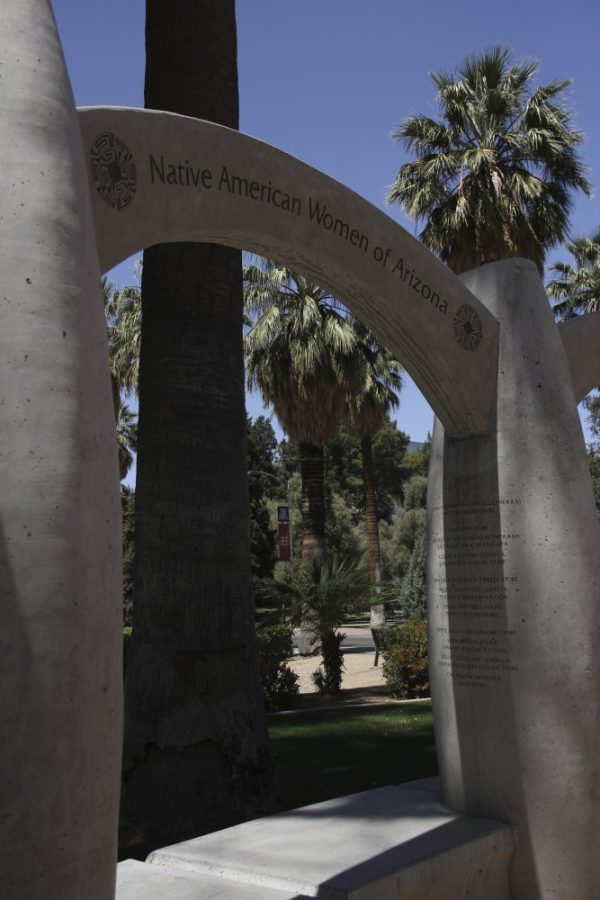An arch was inscribed in the Women’s Plaza of Honor to recognize the achievements of American Indian women who have brought honor to their communities.
After five years of fundraising, the department of Gender and Women’s Studies invited honorees and their families to take part in celebrating the completion of the project with a two-hour ceremony on Friday.
The selection of honorees depended entirely on the 22 federally recognized tribes in Arizona. More than 30 women were selected from various tribes for their contributions and sacrifices, all of which were made in the name of community service. Some were praised for promoting gender equality within their tribe, while others were recognized for being hard-working matriarchs trying to preserve the language and tradition in their families.
“This arch offers a special way to make visible the lives and stories we don’t hear very often,” said Angela Storey, a graduate student studying anthropology and gender and women’s studies.
Attendees discussed the resilience of the women honored, and pointed out their strength and perseverance while working within their tribes.
“There are negative things in the stories of these women that we need to recognize and digest,” said Elizabeth Kennedy, a retired professor of gender and women’s studies.
Kennedy is the founder of the Women’s Plaza project, and spearheaded the committee to recognize American Indian women back in 2007. These women offer an interesting testimony that provides a different picture of Arizona history, Kennedy said.
The arch dedication ceremony began with a musical performance by Gabriel Ayala, who was recently named Artist of the Year at the Native American Music Awards. Ayala was followed by a series of speakers who commented on the importance of including American Indian women into the plaza.
“These women warriors, healers, leaders and educators all are critical to the well-being of a tribe,” said Ofelia Zepeda, a regents’ professor in linguistics and faculty member in the American Indian studies department. Roses and certificates were handed out to these honorees and their families as their names were called by LuAnn Leonard, the vice chair and secretary of the Arizona Board of Regents.
“This is not the end,” said President Eugene Sander when commenting on the significance of the arch, “but simply the beginning.”









